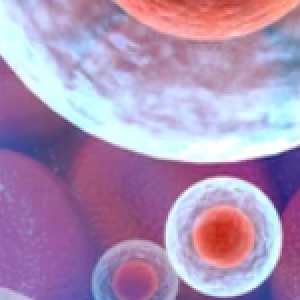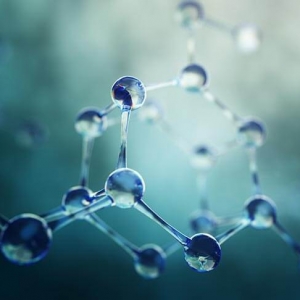CD BioSciences, a US-based CRO serving the global life science research community, has announced a series of new solutions for metabolic homeostasis, including Regulator Characterization, Mechanism Study, Phenotype Analysis, Animal Model Generation, and Therapy Development.
Metabolism is a series of chemical reactions that occur in living systems. The purpose of metabolism is to convert nutrients into energy and building blocks and to excrete nitrogenous wastes. Metabolic processes are tightly controlled by cellular signaling pathways to maintain metabolic homeostasis of the system.
Metabolic homeostasis is determined by cellular energy status, which is established and maintained by regulating the nearly balanced reactions of ATP-generating pathways, typified by glycolysis and oxidative phosphorylation. Cellular metabolism is said to be in homeostasis when cells are fully functional, i.e. they are viable, capable of proliferation and/or performing their specialized functions within the tissues of differentiated organisms.
Extensive studies have been conducted on situations in which drastic changes in energy states occur. These have typically focused on conditions that decrease energy state, such as acute hypoxia, hypoglycemia, and increased muscle work, as well as conditions that increase energy state, such as fructose, ethanol, or glycerol ingestion and hyperbaric oxygen therapy. As long as the shift is within the regulatory range of that cell type and does not last long, the cell can recover. For example, muscle cells can tolerate a significant increase in workload as long as the decrease in energy status is within the prescribed range, is short enough in duration, and is followed by adequate rest after work. If any one of these criteria is not met, the result is pathological.
As a trusted CRO, CD Biosciences offers a comprehensive range of solutions covering all aspects of life science research, including metabolism and metabolic homeostasis. These cell death research solutions include, but are not limited to:
Regulator Characterization: Studying molecular functions of specific regulators in metabolic signaling pathways.
Mechanism Study: Investigation of the regulatory mechanism of specific regulators.
Phenotype Analysis: Analysis of cellular phenotypes regulated by genes/proteins of interest.
Animal Model Generation: Generation of animal models for specific types of metabolic diseases.
Therapy Development: Development of potential therapies for specific types of metabolic diseases.
CD BioSciences provides cost-effective, high-quality, and hassle-free metabolism research solutions to clients worldwide. For more about metabolism research solutions or other signaling pathways, please visit CD BioSciences at https://www.cd-biosciences.com/diabetes-metabolism.html.
About CD BioSciences
CD BioSciences is a trusted research product supplier and CRO based in New York. With high-quality reagents and comprehensive services, CD BioSciences is a one-stop shop devoted to advancing signaling pathway studies for researchers. The company is committed to fulfilling all demands in the research of signaling pathways and provides high-quality reagents and comprehensive solutions to support innovative discoveries.
Metabolism is a series of chemical reactions that occur in living systems. The purpose of metabolism is to convert nutrients into energy and building blocks and to excrete nitrogenous wastes. Metabolic processes are tightly controlled by cellular signaling pathways to maintain metabolic homeostasis of the system.
Metabolic homeostasis is determined by cellular energy status, which is established and maintained by regulating the nearly balanced reactions of ATP-generating pathways, typified by glycolysis and oxidative phosphorylation. Cellular metabolism is said to be in homeostasis when cells are fully functional, i.e. they are viable, capable of proliferation and/or performing their specialized functions within the tissues of differentiated organisms.
Extensive studies have been conducted on situations in which drastic changes in energy states occur. These have typically focused on conditions that decrease energy state, such as acute hypoxia, hypoglycemia, and increased muscle work, as well as conditions that increase energy state, such as fructose, ethanol, or glycerol ingestion and hyperbaric oxygen therapy. As long as the shift is within the regulatory range of that cell type and does not last long, the cell can recover. For example, muscle cells can tolerate a significant increase in workload as long as the decrease in energy status is within the prescribed range, is short enough in duration, and is followed by adequate rest after work. If any one of these criteria is not met, the result is pathological.
As a trusted CRO, CD Biosciences offers a comprehensive range of solutions covering all aspects of life science research, including metabolism and metabolic homeostasis. These cell death research solutions include, but are not limited to:
Regulator Characterization: Studying molecular functions of specific regulators in metabolic signaling pathways.
Mechanism Study: Investigation of the regulatory mechanism of specific regulators.
Phenotype Analysis: Analysis of cellular phenotypes regulated by genes/proteins of interest.
Animal Model Generation: Generation of animal models for specific types of metabolic diseases.
Therapy Development: Development of potential therapies for specific types of metabolic diseases.
CD BioSciences provides cost-effective, high-quality, and hassle-free metabolism research solutions to clients worldwide. For more about metabolism research solutions or other signaling pathways, please visit CD BioSciences at https://www.cd-biosciences.com/diabetes-metabolism.html.
About CD BioSciences
CD BioSciences is a trusted research product supplier and CRO based in New York. With high-quality reagents and comprehensive services, CD BioSciences is a one-stop shop devoted to advancing signaling pathway studies for researchers. The company is committed to fulfilling all demands in the research of signaling pathways and provides high-quality reagents and comprehensive solutions to support innovative discoveries.





